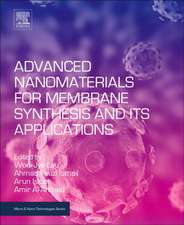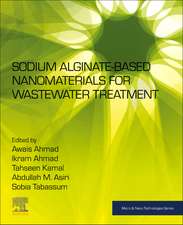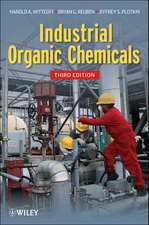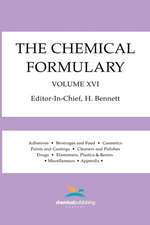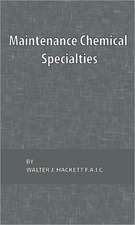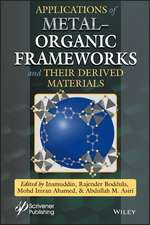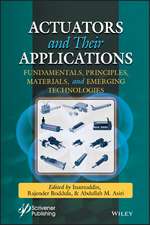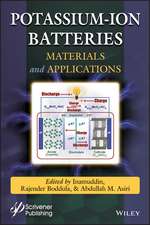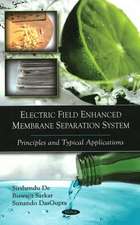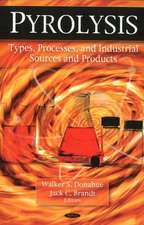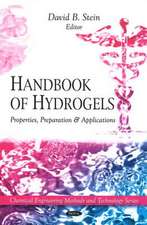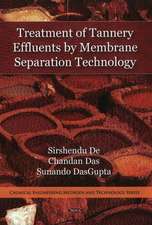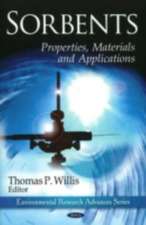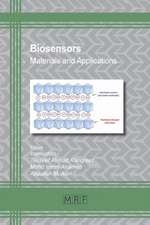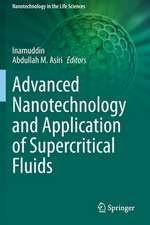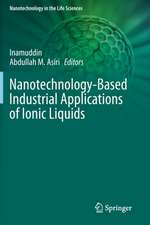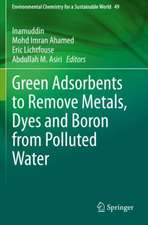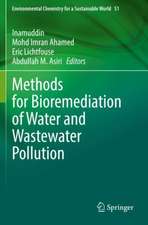Green Sustainable Process for Chemical and Environmental Engineering and Science: Supercritical Carbon Dioxide as Green Solvent
Editat de Inamuddin, Abdullah M. Asiri, Arun M. Islooren Limba Engleză Paperback – 29 oct 2019
A brief introduction and limitations to the practical use of supercritical carbon dioxide as a reaction medium are also discussed, as are the applications of supercritical carbon dioxide in the semiconductor processing industry for wafer processing and its advantages and obstacles.
- Reviews available green solvents for extraction, separation, purification and synthesis
- Outlines environmentally friendly chemical processes in many applications, i.e., organic reactions, metal recovery, etc.
- Includes numerous, real industrial applications, such as polymers, pharmaceuticals, leather, paper, water filtration, textiles, food, oils and fats, and more
- Gives detailed accounts of the application of supercritical CO2 in polymer production and processing
- Provides a process for extraction, seperation and purification of compounds of biological medicinal importance
- Gives methods for nanoparticle production using supercritical carbon dioxide
- Provides a systematic discussion on the solubility of organic and organometallic compounds
Preț: 1048.88 lei
Preț vechi: 1469.04 lei
-29% Nou
Puncte Express: 1573
Preț estimativ în valută:
200.70€ • 210.11$ • 166.07£
200.70€ • 210.11$ • 166.07£
Carte tipărită la comandă
Livrare economică 29 martie-12 aprilie
Preluare comenzi: 021 569.72.76
Specificații
ISBN-13: 9780128173886
ISBN-10: 0128173882
Pagini: 506
Dimensiuni: 191 x 235 mm
Greutate: 0.86 kg
Editura: ELSEVIER SCIENCE
ISBN-10: 0128173882
Pagini: 506
Dimensiuni: 191 x 235 mm
Greutate: 0.86 kg
Editura: ELSEVIER SCIENCE
Cuprins
1. Polymer production and processing using supercritical carbon dioxide
Ajazuddin Ajazuddin
2. Extraction of bio-oils from algae using supercritical carbon dioxide
Alok Patel
3. Extraction of catechins from green tea using supercritical carbon dioxide
Amit Alexander
4. Application of supercritical CO2 for enhanced oil recovery
Anabela Romano
5. Metal recovery using supercritical carbon dioxide
Daniel Bertuol
6. Use of supercritical CO2 in alkylations reactions
Dhanya Sunil
7. Extraction of phytochemicals from saffron by supercritical carbon dioxide
Emma Suali
8. Extraction of bioactive compounds
Fernanda Wariss Figueiredo Bezerra
9. Extraction of green propolis using supercritical carbon dioxide
Fernando Pellegrini Pessoa Sr.
10. Solubility of Pharmaceutical Compounds in Supercritical Carbon Dioxide: Application, Experimental and Mathematical Modelling
Gholamreza Pazuki
11. Decaffeination using supercritical carbon dioxide
Giovani Leone Zabot
12. Super critical fluids for the extraction of oleoresins and plant phenolics
gun hean chong
13. Applications of supercritical carbon dioxide in textile industry
Heri Septya Kusuma
14. Hydrogenation of fats and oils using supercritical carbon dioxide
Ming Bao
15. Extraction of bioactives from citrus
Mudasir Yaqoob
16. Solubility of organic compounds in supercritical carbon dioxide
Mudasir Ahmad Shagoo
17. Super critical carbon dioxide extraction of marigold
Muhammad Mushtaq
18. Industrial polymer synthesis using supercritical carbon dioxide
Natascha Cheikhyoussef
19. Solubility of organometallic complexes in supercritical carbon dioxide
Shahryar Jafarinejad
Ajazuddin Ajazuddin
2. Extraction of bio-oils from algae using supercritical carbon dioxide
Alok Patel
3. Extraction of catechins from green tea using supercritical carbon dioxide
Amit Alexander
4. Application of supercritical CO2 for enhanced oil recovery
Anabela Romano
5. Metal recovery using supercritical carbon dioxide
Daniel Bertuol
6. Use of supercritical CO2 in alkylations reactions
Dhanya Sunil
7. Extraction of phytochemicals from saffron by supercritical carbon dioxide
Emma Suali
8. Extraction of bioactive compounds
Fernanda Wariss Figueiredo Bezerra
9. Extraction of green propolis using supercritical carbon dioxide
Fernando Pellegrini Pessoa Sr.
10. Solubility of Pharmaceutical Compounds in Supercritical Carbon Dioxide: Application, Experimental and Mathematical Modelling
Gholamreza Pazuki
11. Decaffeination using supercritical carbon dioxide
Giovani Leone Zabot
12. Super critical fluids for the extraction of oleoresins and plant phenolics
gun hean chong
13. Applications of supercritical carbon dioxide in textile industry
Heri Septya Kusuma
14. Hydrogenation of fats and oils using supercritical carbon dioxide
Ming Bao
15. Extraction of bioactives from citrus
Mudasir Yaqoob
16. Solubility of organic compounds in supercritical carbon dioxide
Mudasir Ahmad Shagoo
17. Super critical carbon dioxide extraction of marigold
Muhammad Mushtaq
18. Industrial polymer synthesis using supercritical carbon dioxide
Natascha Cheikhyoussef
19. Solubility of organometallic complexes in supercritical carbon dioxide
Shahryar Jafarinejad
Recenzii
"The extraction chapters focus primarily on applications of biological and bioactive compounds: extraction of catechins from green tea, lipids from algae, propolis, oleoresins and plant phenolics, essential oils, caffeine, and several chemicals from citrus, marigold, saffron, and other plants. The extended focus on extraction and purification of biological compounds is not surprising, since these materials tend to be very sensitive to temperature, making the comparative lower temperatures of SC-CO2 very attractive. The chapter on decaffeination is particularly well covered, probably given the fact that this extraction has been performed using SC-CO2 for quite a few years. The extraction chapters include an introduction of the relevance of the compounds extracted, short descriptions of the processes used, and advantages of using SC-CO2. These chapters also include several summary tables comparing different extraction methods, experimental conditions, alternative solvents, and types of extractions. The book chapters start from the premise that supercritical carbon dioxide is a “green solvent. Although most chapters discuss disadvantages and limitations of using SC-CO2, they do not deeply cover sustainability metrics to evaluate the “greenness of carbon dioxide as a solvent, including advantages and disadvantages. Chapter 11 on decaffeination is the only chapter to include a substantial discussion on environmental metrics such as life cycle assessment to evaluate the environmental profile of the supercritical carbon dioxide process. If readers are interested in evaluating the environmental profile of using SC-CO2 compared to other solvents, they will need to look for a different publication. I believe this book is useful as a technical reference of some applications of supercritical carbon dioxide and is particularly useful in supplying extraction scenarios. The list price is comparable to other books that belong to this type of reference material. This work is not structured as a textbook but could be useful as supporting material for graduate or senior classes covering green chemistry or engineering to offer students practical examples of industrial or research uses of supercritical carbon dioxide. However, this would need to be supported by other references that critically evaluate the environmental profile of using carbon dioxide compared to other alternatives using appropriate metrics." --ASEE

